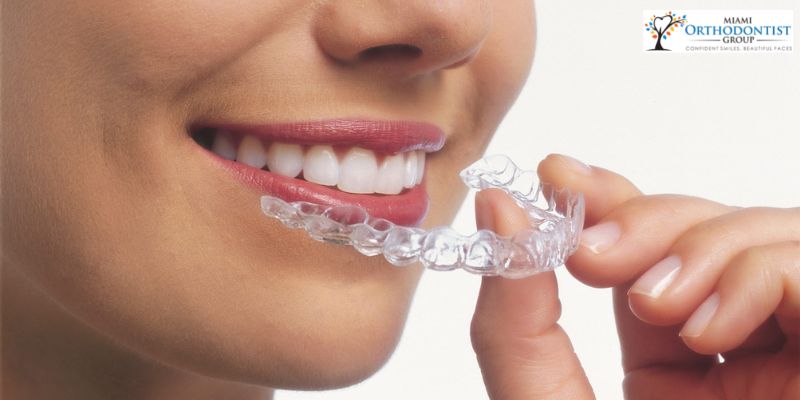Everyone deserves to smile confidently, no matter who they are or what phase they are in. So, when you decide to improve your smile, know that you have just made the best investment that will also boost your general health. However, choosing the best orthodontic to help you throughout your treatment journey is as relevant as getting those nice teeth.
It can seem like an easy process, but nobody walks up to an orthodontic specialist and starts an orthodontic treatment without checking to see if they are reliable. The whole idea of having a straighter is exciting. But the orthodontist you work with can even make it more worthwhile. Here is a guide on how questions you must ask before selecting the right orthodontist.
1. Do You Have Good Reviews about Your Orthodontic Practice from Previous Patients?
Before you choose an orthodontic specialist to give you a straighter smile, ask if other patients they have worked with have nice reviews about them. If they have online review platforms, you should go there and check what others say about them. From reviews, you can tell if they are reliable to work with or if they can offer you the quality of care you need. Your Miami orthodontist has a support team to take you on a successful teeth-straightening journey. They also have authentic reviews from past patients, and you can go through them before making a decision.
2. Do You Have Adequate Certification and Training to Carry Out Orthodontic Treatments?
Most people who claim to have the skills and expertise in orthodontic treatments might not be as real as they claim to be. It would help if you never assumed that all orthodontic specialists have certifications and proper training. Even if someone recommended them, you still have to determine whether they are reliable. A good orthodontist must pass through serious training during their academic studies.
Orthodontic practice is a part of dentistry, but those who practice them are known as orthodontists and not dentists. Orthodontics is a core of medicines that allows the trained specialist to treat you on a specific area of your dental need. While a good dentist supplies you with advice and guidance on your crown and cavities, a properly trained orthodontist handles issues related to your dental braces.
Make sure you ask them if they have proper orthodontic training in these areas:
- How to re-establish patients’ facial structure and growth by creating another alveolar structure for them.
- The maturation and studies of a patient’s jaw and teeth.
- Biomechanical methodologies that ascertain proper teeth realignment
- Case studies
Therefore, you must be sure if you want to depend on a particular orthodontist before starting your treatment journey. The person must have good orthodontic training and top-notch experience.
3. Can You Give Accounts of Your Orthodontic Experience?
It is important to know that much about your orthodontist. Trace the background and see the level of experience your orthodontist has. You can ask them several questions that align with their qualifications, especially during your consultation visit. From your first interaction, you can determine if an orthodontic is good enough for you.
You can ask them the following questions:
- Which school did you attend?
- How many years have you practiced as an orthodontic specialist?
- Do you practice updated treatment options?
Any orthodontic specialist with proper training and qualifications can answer your questions and make you feel comfortable if you wish to know more about them.
4. What Treatments Can You Offer Me?
Most patients wonder what treatments to expect. But, orthodontic approaches are unique for treating malocclusions. However, patients have different orthodontic problems, so you can ask your orthodontist specialist some questions, such as; who will oversee my treatment process, how long will my treatment last, will I get follow-up visits, and how often? Asking these questions gets you prepared for the treatment procedure and outcome.
5. What Treatment Plans Are Available for Me?
Your orthodontist will work with you based on the treatment options they have strategized to meet your needs. Only your orthodontist knows what treatment will work best for you. Therefore, do not make decisions that will slow down the treatment process.
Also, getting orthodontic braces can take an extensive process that needs years of assistance and work in most cases. Since each treatment has a strategic duration, you should work hand in hand with your orthodontist to know what treatment methods are available for you to try.
There is a vast range of orthodontic treatment plans as follows:
Traditional Braces
Traditional braces are made up of brackets and wires. Many people reject using metal braces for their orthodontic treatment because they are too common and mostly worn by kids. However, metal braces are reliable for realigning malocclusions.
The braces work by firmly holding the wires connected to each tooth. Continuous pressure can move your teeth slowly and gradually throughout the treatment period. The time for wearing traditional orthodontic braces is between 12-36 months. But, this can rely on the severity of your malocclusions, how fast you respond to treatment, and your practices to determine your perfect result.
Clear Braces
 Clear braces are teeth aligners that are as effective as traditional metal braces. The difference between the two approaches is in their appearances. While metal braces have components such as wires and brackets, clear braces use transparent ceramic brackets. Adults prefer them as they can blend with the natural teeth color, making them discreet in appearance.
Clear braces are teeth aligners that are as effective as traditional metal braces. The difference between the two approaches is in their appearances. While metal braces have components such as wires and brackets, clear braces use transparent ceramic brackets. Adults prefer them as they can blend with the natural teeth color, making them discreet in appearance.
Invisalign
 Invisalign or clear aligners are removable orthodontic treatment approaches that use clear trays to adjust teeth. They do not make use of wires and brackets like the others. They are discreet, allowing you to continue your treatment without many people knowing. It is also the fastest, as you can wear the tray for up to 15 months.
Invisalign or clear aligners are removable orthodontic treatment approaches that use clear trays to adjust teeth. They do not make use of wires and brackets like the others. They are discreet, allowing you to continue your treatment without many people knowing. It is also the fastest, as you can wear the tray for up to 15 months.
Conclusion
When deciding to get a straighter smile, it is right to ask questions about the best orthodontic specialists to work with. Asking relevant questions can help you know if the orthodontist will be good for you and your household before hiring them.


